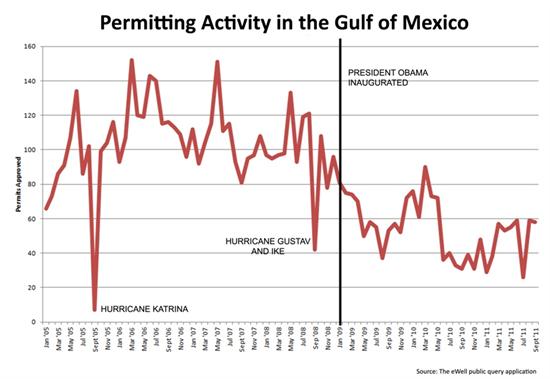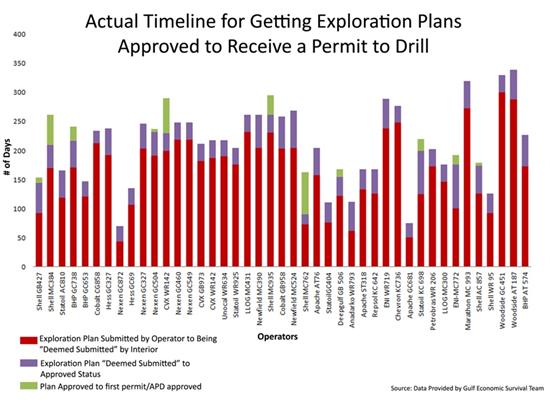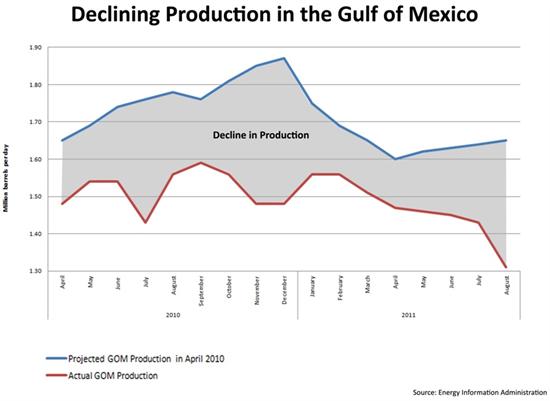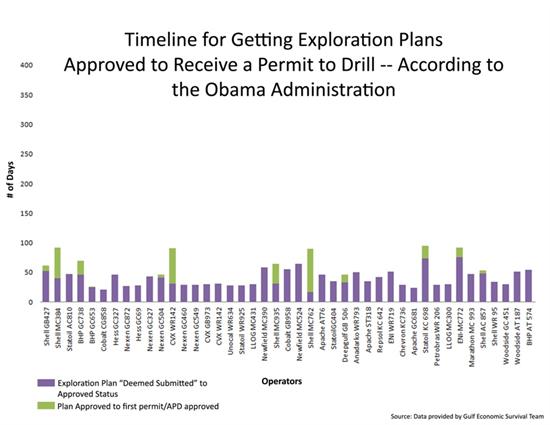Press Release
Chairman Hastings Statement on Lingering Impacts a Year After President Obama’s Official Gulf Moratorium Lifted
WASHINGTON, D.C.,
October 12, 2011
|
Jill Strait, Spencer Pederson or Crystal Feldman
(202-225-2761)
 House Natural Resources Committee Chairman Doc Hastings (WA-04) today delivered the following statement at the Full Committee oversight hearing on “One Year after President Obama’s Gulf of Mexico 6-Month Moratorium Lifted: Examining the Lingering Impacts on Jobs, Energy Production and Local Economies.” House Natural Resources Committee Chairman Doc Hastings (WA-04) today delivered the following statement at the Full Committee oversight hearing on “One Year after President Obama’s Gulf of Mexico 6-Month Moratorium Lifted: Examining the Lingering Impacts on Jobs, Energy Production and Local Economies.”
“In May 2010, shortly after the tragic Deepwater Horizon explosion and oil spill, the Obama Administration placed a moratorium on all deepwater drilling in the Gulf of Mexico. This official moratorium lasted for nearly six months and was lifted on October 12, 2010 – exactly one year ago today. This official moratorium, unfortunately, was followed by a de facto moratorium that still did not allow businesses and their employees to return to work until the first permits were issued in February of this year. The Obama Administration’s inability, or refusal, to issue permits in a timely and efficient manner after the official moratorium was lifted resulted in lost jobs and significant economic pain. Since the moratorium was imposed, this Committee has heard directly from businesses and local community groups about the economic impacts. Today, one year later, this hearing is an opportunity to follow-up and listen to those from the Gulf about what economic conditions are like there today. While I recognize that some permits indeed are being issued, there are facts and data that demonstrate recovery is moving at a pace that continues to hamper job creation and the economy. First, permitting activity in the Gulf has dramatically declined under the Obama Administration and has operated at lows that equate to hurricane-induced slowdowns. Additionally, permitting activity has not returned to pre-Deepwater Horizon levels. The average number of permits issued in the six-months prior to the Deepwater Horizon incident was 71 per month. The average number for the past six months is 52 per month. That’s a 27% decrease, which directly affects jobs and the local economy. Second, instead of looking at the number of permits issued, we should also look at production levels. This chart shows how production has declined. The top line is what production in the Gulf was projected to be before the spill and the President’s moratorium. The bottom line represents actual production. Third, the time it takes to get approval for permits and exploration plans is much longer today. Director Michael Bromwich has frequently stated that there is not a backup of offshore drilling permits waiting for approval…and that this proves there is no de facto moratorium. This chart actually helps highlight what Director Bromwich is referring to. It shows the number of days it took specific explorations plans to be accepted and approved in order to receive a permit to drill. As you can see from this chart, these plans are being approved in a relatively short time-frame. But that is only part of the story. This next chart shows how long it actually took companies to get their plans approved–sometimes nearly 300 days. The biggest delay in the process, as shown here, is getting the Interior Department to accept the exploration plan and declare it ‘deemed submitted.’ Companies are submitting plans and getting stuck in a back and forth limbo with the Interior Department that can drag on for months. This is the step the Obama Administration doesn’t talk about. Keep in mind, companies can’t apply for permits until its exploration plan has been submitted and approved. That’s why it’s disingenuous to only refer to pending permits and approved permits – as the Interior Department likes to do – because the log jams occurs before companies even get to that point. It’s a slight of hand to make the process look much more efficient. Fourth, 11 deepwater rigs have left the Gulf of Mexico for foreign countries such as Egypt and Brazil. Every time one of these rigs leaves, it takes away good-paying American jobs. In addition, 84 offshore support vessels have also departed the Gulf. The livelihood of communities and businesses throughout the Gulf depend on safe and responsible offshore energy production. It’s been a year and a half since the Deepwater Horizon incident, and a year since the President’s moratorium was officially lifted. It’s time to get people back to work and get the Gulf’s economy growing again.” ### |
Newsletter Sign Up
Sign up to receive news, updates and insights directly to your inbox.



